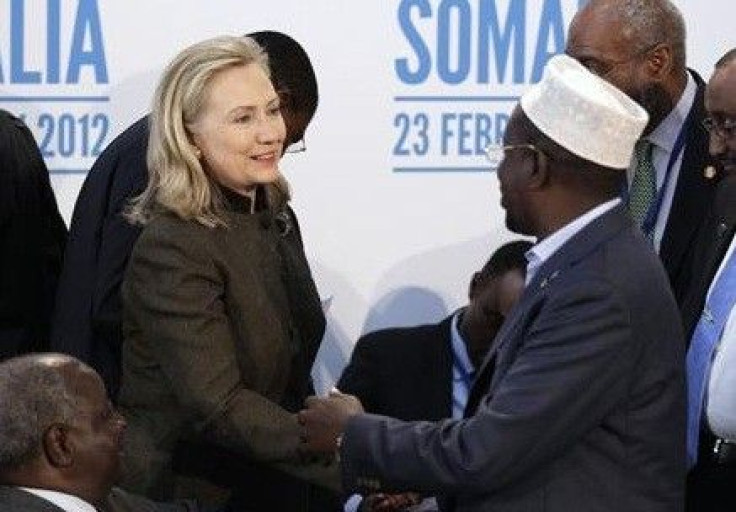World Leaders Gather in London for Somali Talks

World leaders, including U.S. Secretary of State Hilary Clinton and British Prime Minister David Cameron, met in London Thursday to discuss ending Somalia's battle against the al Shabaab Islamist insurgency and also erasing decades of anarchy in the Horn of Africa.
Speaking at the meeting, Clinton threatened sanctions against any one blocking reforms aimed at stopping Somalia's vicious cycle of civil wars, piracy and bloodshed.
Clinton and Cameron were joined by other heads of state, including Arab Sheikhs and UN Secretary General Ban Ki-moon as well as representatives from several Somali factions.
IAl-Shabaab, who control much of central Somalia, were not invited to the talks.
The position of the United States is straightforward: Attempts to obstruct progress and maintain the broken status quo will not be tolerated, Clinton told assembled journalists, according to Reuters.
We will encourage the international community to impose further sanctions, including travel bans and asset freezes, on people inside and outside the [Transitional Federal Government] TFG who seek to undermine Somalia's peace and security or to delay or even prevent the political transition.
The London summit follows reports the United Nations agreed to increase its presence in Somalia from 12,000 troops to 17,731.
Reports also emerged Thursday that an al-Shabaab stronghold in the south of the country had been captured by Ethiopian and Somali forces.
Reacting to Clinton's statements, al Shabaab dismissed the London meeting as part of a concerted Crusade against the Muslims of Somalia and pledged to fight on to establish Islamic rule, Reuters reported.
Somalia is one of the world's worst failed states, and after more than 20 years of conflict and anarchy the country has become a hotbed of violence for a number of competing militias.
Thursday's talks were aimed at establishing a legitimate successor government to the current TFG that will be accepted by the country's various clans.
It is hoped that if a viable alternative can be found, it will overturn Somali's natural distrust of state power, which most associate with corruption and brutal repression.
© Copyright IBTimes 2024. All rights reserved.











